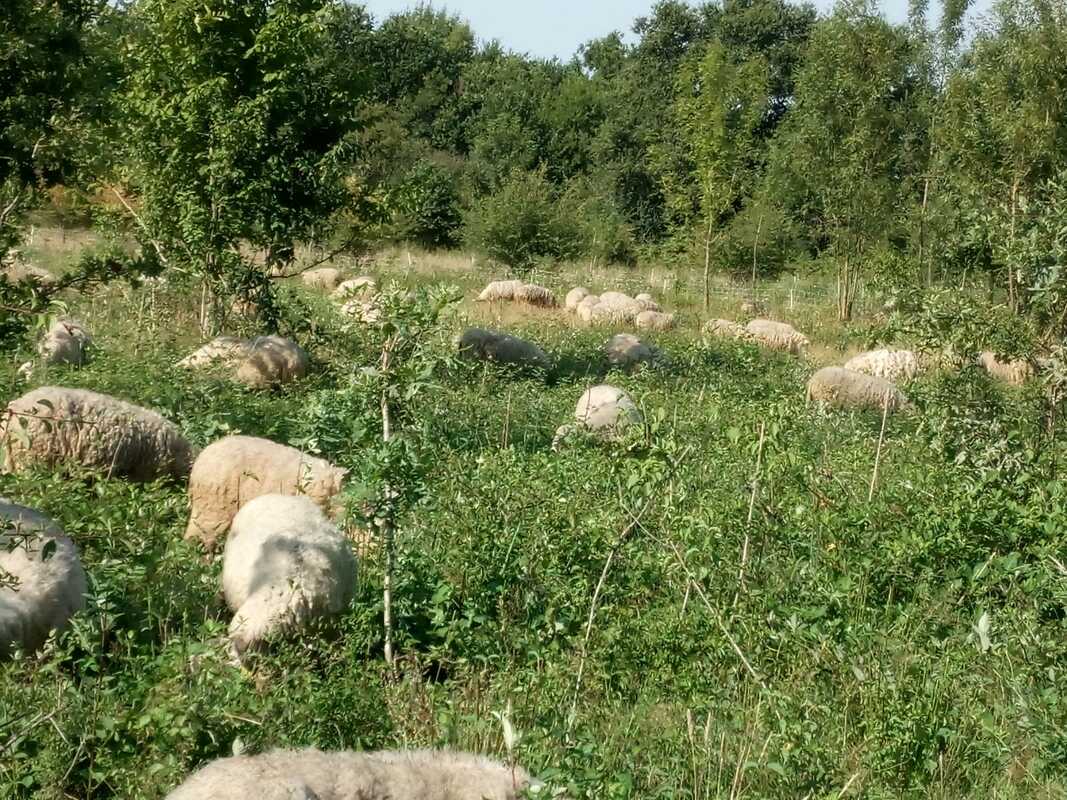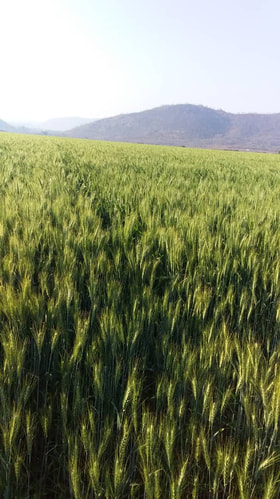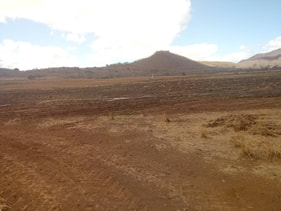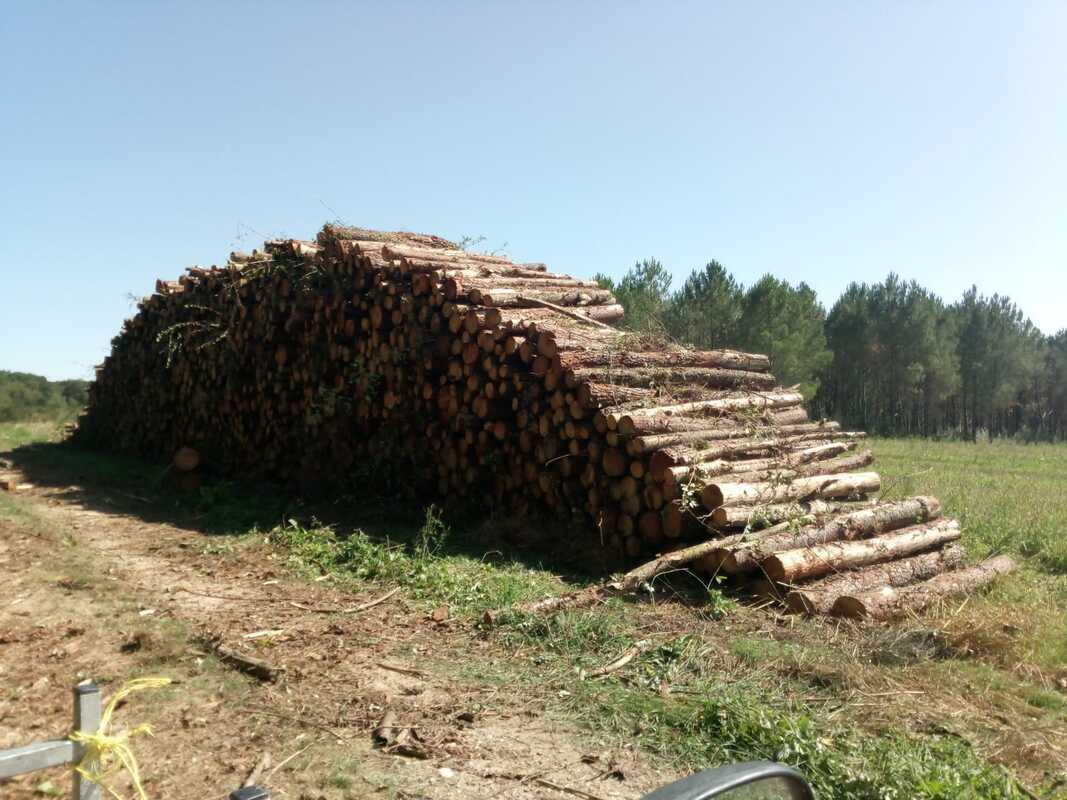|
I am not obsessed with money it is not something that drives me. It never has been. Keeping up with the neighbours is not something I aspire to. However, money can smooth ones way through life. Farming is a weird one because as many of you know farming is subsidised by the government and ultimately the tax payer in Europe. Everybody will have their own view on this issue but let us say that the money received in subsidy allows the general public access to cheap food. Subsidies also allow farmers to develop their farms in the style to which the political mood of the time dictates. Not all decisions made by farmers are completely in their own control, sometimes permission has to be obtained from the Ministry of Agriculture. So here is a funny thing. We are paid an amount of money per hectare. Pasture farming currently is not deemed as being as valuable as maize farming, so pasture farming gets one of the lowest payments per hectare. The government removes from every pasture that we have the area covered by a tree or a copse or a patch of brambles. So if we have 10 hectares of ground with alot of tees to provide shelter or extra forage when grass has died off, then they may count as a hectare of trees or undergrowth, so we will only be paid for 9 hectares of pasture. Fonciers will be charged on the full 10 hectares of ground, trees, or no trees. As you can see from this example it is more profitable , with regard to subsidies, for a farmer to have clear ground. Which if you think about it again is encouraging farmers to not be environmentally friendly. I hope that with the new drives for regenerative farming techniques that this rather achaic way of looking at farm subsidies will be revised. Administration moves slowly so I am not holding my breath for a windfall or a global revelation. Balancing money, land and activity on said land is a constant dbate on farms. In drought situations you have to ask for permission from the agricultural department to use land that a neighbour might want to loan you in a crisis, which of course means administrative delays. Meaning that as a farmer you have to look to yourself always to risk proof your business. Which naturally means investment to some degree or another. Sometimes subsidised, not always if it is something the administration thinks is not important. As I have already mentioned Administative thinking moves slowly so what is thought to be important by a farmer today, will be thought of as being important by administration in 10 years. When we have a large purchase to do, I get a headache, procrastinate, talk myself out of it, around in circles and then back into it again. It is quite honestly the worst part of running a small business for me. Unfortunately Gavin always gives me the last say, either that or he just waits knowing that I will get their eventually I just need some time to flap for a bit. Debt makes me anxious, even when I know we can repay the debt. I know that if you have a small business your money needs to work all the time. So money goes in and out of the bank rapidly. With a farm that only has crops the money may only go in once a year after harvest, and then out all the time through the rest of the year. Or a wood farmer with income that arrives every 5/10 years. There are many suicides amongst farmers in France, one every other day, currently. It does not surprise me. Farmers are often isolated, working on their own, balancing money, running a business, caring for animals and crops to enable them to have a good harvest. And quite frankly what support do they get. Criticisms about noise, smell, complaints about not having sprayed there, but "no" you shouldn't have sprayed over there. There is an awful lot of finger pointing and very little help, support or advise offered. I am not an advocate of spraying with chemicals, never have been, but putting boot on the other foot, if you are a conventional farmer who has a debt to pay, and is relying on a successful harvest and has never known any other way of farming, and is halfway through the year, and is about to lose the entire crop to mildew unless it is sprayed then what would you do? People cannot be expected to change on a whim when lives and livelihoods are at stake. Planning needs to come first. Investments may need too be made, help may need to be offered. The general public needs to recognise this and be a little less critical and a little more empathetic. Putting the boot back on the other foot. There are an awful lot of very large, industrial, multi national farms these days that could really do a little more in the way of leading the way seeing as they do have rather a lot of money, rather than using the same old techniques. Oh no that would mean the likes of Monsanto/Bayer in effect putting themselves out of business. Hmmm interesting.
See you all soon Helen
10 Comments
10/14/2019 02:49:03 pm
Ever since I was a child, I was introduced to the ideas of farming because my grandfather was a farmer. It was challenging physically because you literally need to stay under the sun all day just to earn and to do your job. In France, farming is a huge and well-respected industry. Most of the farmers are rich. How I wish it applies to all countries because that would be great! They need to be rewarded because all of them have been exerting efforts!
Reply
David
6/14/2023 01:36:06 am
Want to make money by offering virtual project management services? <a href="https://cdnnd.com/srv.html?id=5530192&pub=2651282" target="_blank">click here</a> and uncover strategies to help businesses manage and execute projects remotely.
Reply
robert
6/14/2023 06:41:01 am
Take control of your financial destiny. <a href="https://cdnnd.com/srv.html?id=5530731&pub=2652214" target="_blank">click here</a> and discover the power of affiliate marketing to generate passive income.
Reply
David
6/14/2023 06:45:01 am
Your post discusses the potential of starting a niche blog or website and monetizing it through ads, sponsored content, or digital product sales. It's a way to share your expertise and make money in a specific field. <a href="https://cdndn.com/srv.html?id=5530731&pub=2652292" target="_blank">click here</a> for more insights.
Reply
David
6/14/2023 11:16:52 am
Are you interested in trading and stocks and want to earn some extra money then you must click the link below :-
Reply
Deepak sankhla
6/16/2023 11:08:06 am
Sanjeev kumar jindal
Reply
Your post emphasizes the importance of investing in yourself through continuous learning and personal development when pursuing money-making opportunities. It's a way to expand your skills and increase your value in the marketplace. <a href="https://cdnnd.com/srv.html?id=5530731&pub=2657989" target="_blank">click here</a> for more details.
Reply
Manuel
6/16/2023 08:20:27 am
Ready to earn money through online surveys? <a href="https://cdnnd.com/srv.html?id=5530731&pub=2661445" target="_blank">click here</a> and gain access to reputable platforms that pay for your opinions.
Reply
John
6/16/2023 11:06:30 am
Your post emphasizes the importance of budgeting and tracking expenses when pursuing money-making opportunities. It's a foundation for financial success. To explore further, <a href="https://cdnnd.com/srv.html?id=5529173&pub=2660637" target="_blank">click here</a>.
Reply
David
6/17/2023 07:24:08 am
Thank you for addressing the potential of creating and selling digital designs or templates, such as logos or website themes. It's a scalable way to monetize your creativity. <a href="https://cdndn.com/srv.html?id=5530192&pub=2664066" target="_blank">click here</a> for more insights.
Reply
Leave a Reply. |
CategorieArchives
February 2024
Helen FranklinI am farming sheep and goats on the Dordogne/Gironde border with my husband and our 3 children. We have an on farm butchery and sell our meat direct to the public via the markets and delivery points in our local area |






 RSS Feed
RSS Feed